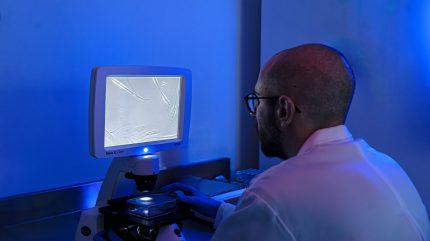
The Abu Dhabi Stem Cells Center (ADSCC) in the UAE has developed clinical-grade induced pluripotent stem cells (iPSCs) that meet the good manufacturing practice protocols, marking the ‘first’ in the Middle East.
The ADSCC’s research laboratories created these iPSCs by leveraging virus-free techniques and protocols.

Discover B2B Marketing That Performs
Combine business intelligence and editorial excellence to reach engaged professionals across 36 leading media platforms.
iPSCs are intended for use in therapeutic applications, including treatments for neurodegenerative diseases such as Alzheimer’s, multiple sclerosis, Parkinson’s, and diabetes. To treat these conditions, ADSCC is actively conducting multiple research projects to explore iPSCs’ use.
They are derived by reprogramming adult cells to an embryonic-like state and can be distinguished into various cell types. This technology allows for personalised therapies from own cells of an individual, reducing the immune rejection risk.
ADSCC’s virus-free protocol avoids genetic modification, which minimises complications such as tumour formation. Its adherence to stringent clinical standards ensures that iPSCs are safe for therapeutic use.
The in-house protocol for the development of iPSCs claims to lay a foundation for upcoming therapeutic applications and biomanufacturing in the country.

US Tariffs are shifting - will you react or anticipate?
Don’t let policy changes catch you off guard. Stay proactive with real-time data and expert analysis.
By GlobalDataADSCC CEO and Capital Organ Regeneration (CORi) research project principal investigator professor Yendry Ventura said: “Developing our own clinical-grade iPSCs using a proprietary, virus-free protocol is a monumental step forward for the UAE and the global medical community.
“This accomplishment not only reinforces Abu Dhabi’s position as a hub for cutting-edge medical research but also opens the door to transformative therapies that can address some of the most complex diseases. The success of this project reflects our commitment to delivering safe, innovative, and personalised solutions to patients worldwide.”
In a move to further iPSC research, ADSCC announced a collaboration with Kyoto University’s Center for iPS Cell Research and Application (CiRA) and Rege Nephro, in December 2023.
The partnership focuses on creating a treatment for diabetes using iPSC-derived pancreatic beta cells. A laboratory has been established at Kyoto University in Japan to facilitate discovery work alongside ADSCC’s Abu Dhabi laboratories.


